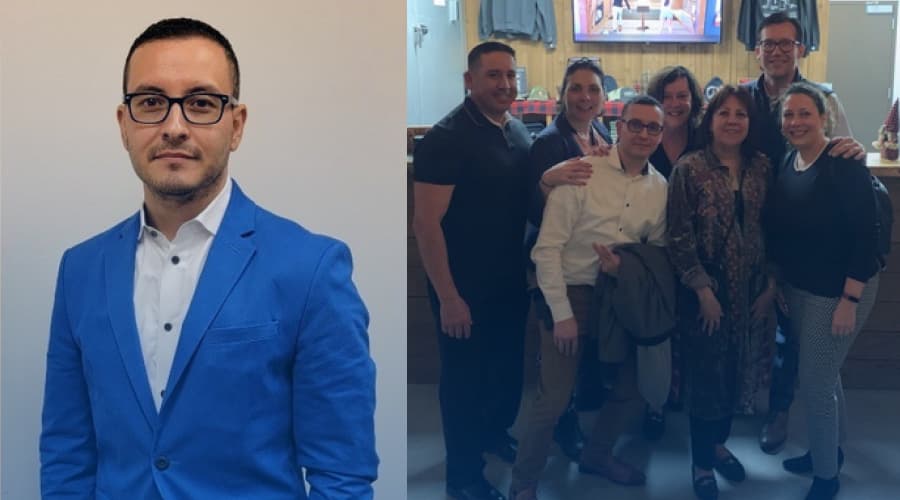By Sergio Espinoza, CMOM, MB, Clinical Practice Manager, Post-Acute Care
Hispanic Heritage Month celebrates the contributions of people tracing their roots to Spain, Mexico, Central America, South America and the Spanish-speaking nations of the Caribbean. In honor of the month, observed September 15 – October 15, Sergio Espinoza shares more about his heritage, what it means and why the observance is important to him.
What are some of the things you love most about your Hispanic heritage?
The food, the music, the culture and my indigenous heritage. I’m most proud of the morals and ethics passed down to me by my mother.
What does your heritage mean to you?
I personally don’t use “Hispanic,” and instead use Mexican or Latino. My heritage to me means strength, perseverance, hardworking and family-oriented. Hispanic heritage is not about tacos, Mexican music or perceived attire. It is about celebrating the struggles my people have had throughout history both in Mexico and the U.S. It is about educating others about our culture and traditions, so as to avoid insensitivity when thinking about Hispanic heritage.
How has it shaped your life?
I came to the states when I was six years old. My family and I were migrant farm workers all my elementary years. So, we travelled a lot with family. I guess that’s where my family-centric personality comes from. Being in the hot sun all day, every day during summers made me realize that college may be my way of breaking the cycle. I learned to appreciate my background, my heritage and my culture even more, so and I am happy to share my experiences and my culture with people who don’t fully understand it.
Has it played a role in shaping your career?
Funny to say, but in my experience, our family almost never visited a doctor’s office. Mainly because we weren’t educated about the importance of health maintenance. In my childhood, we didn’t have health fairs or community outreach in predominantly Hispanic neighborhoods. I made it my mission to make a difference. At first, my goal was to become a physician. Due to life circumstances, I was unable to complete that; however, I was able to reach my goal in a different way. I have been managing medical offices for almost 16 years. In my career, I have been able to provide free care, health screenings and education, while enrolling patients in Medicaid and performing outreach programs to educate families on other resources for non-residents and immigrants.
How do you celebrate your heritage?
I celebrate my heritage every day. I listen to music, read Chicano/Latino books, teach my children about their background and educate others about what it means to be Latino in the U.S.
How do you celebrate your heritage at work?
I am fortunate enough to have other Latinos in my region. I am also fortunate enough to have a boss who understands the struggles, who is culturally sensitive and sees the strength in diversity. I am always teaching my peers new things, new sayings and new words. It is exciting to see that I can make a difference in their day when I come up with the darndest sayings.
Are you involved with any organizations that celebrate, educate about, or promote Hispanic heritage?
I am part of a Latino based fraternity, Sigma Lambda Beta. It is a Latino-based organization with multicultural membership. We have over 50 ethnicities and nationalities in our organization, and we learn from each other every day. In college, we developed programs and would invite everyone to participate in learning about Hispanic culture but also about other cultures within our organization. I became Board of Director for my fraternity right after graduation. I was also the Regional Director and part of the Regional Director caucus, which helped mentor and guide undergraduate members in program development and community service.
What does the observance of Hispanic Heritage Month mean to you?
It is a step forward in helping others accept us in this country. It is also a reflection on the sad parts of history, notably, the suffering of indigenous people of Mexico. But, it also highlights how we have been able to move forward from history.
For more stories from our associates, clinicians and the communities we serve, please subscribe to our blog.
